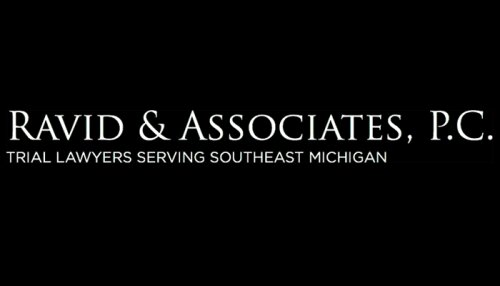Best Bad Faith Insurance Lawyers in Southfield
Share your needs with us, get contacted by law firms.
Free. Takes 2 min.
List of the best lawyers in Southfield, United States
About Bad Faith Insurance Law in Southfield, United States
Bad Faith Insurance Law refers to the area of law that allows individuals to seek remedies when an insurance company fails to fulfill its obligations to policyholders. In Southfield, Michigan-a part of the United States-insurance companies are expected to act in good faith and deal fairly with their clients. When they fail to do so, by either denying valid claims without reason or unjustly delaying settlements, policyholders may have the right to file a bad faith claim against their insurer. This legal provision is designed to hold insurance companies accountable and protect the rights of insured individuals.
Why You May Need a Lawyer
There are several situations where one might require legal assistance concerning bad faith insurance. Some common scenarios include:
- Your insurance company has denied your claim without providing a valid reason.
- Your claim has been significantly delayed, causing undue financial strain.
- You believe the settlement amount offered is much lower than the actual value of your valid claim.
- The insurance company misrepresents the terms of your policy or applicable coverage.
- There are discrepancies between what the agent promised and what is being delivered by the insurance company.
In such cases, consulting with an experienced attorney can help you understand your rights and the best course of action to take.
Local Laws Overview
In Southfield, as part of Michigan, the laws governing bad faith insurance primarily stem from state statutes and precedents set by previous court rulings. Michigan does not have a specific statutory law addressing bad faith insurance claims; however, policyholders can rely on common law principles and the Michigan Consumer Protection Act under certain circumstances. Courts in Michigan look at the conduct of the insurance company to determine if they acted with an unreasonable refusal to pay or the absence of a reasonable basis for refusal. It's crucial for policyholders to document all communications and evidence related to their claims to build a strong case.
Frequently Asked Questions
What constitutes bad faith by an insurance company?
Bad faith occurs when an insurer unreasonably refuses to honor its obligations to its policyholder without a legitimate cause. This could include denying valid claims, delaying payments, or failing to investigate claims thoroughly.
Can I file a bad faith lawsuit if my claim is denied?
Yes, if your claim is denied without a valid reason or due process, you may have grounds for a bad faith lawsuit. It is best to consult a lawyer who can evaluate the specific circumstances of your case.
What evidence is needed to prove bad faith?
Useful evidence may include written communication with the insurer, documentation of claims filed, and any offers or settlement communications. Detailed notes of verbal interactions can also be helpful.
How long do I have to file a bad faith insurance claim?
The statute of limitations for filing a bad faith insurance claim in Michigan can vary, so it's important to consult a lawyer to understand any deadlines that apply to your specific case.
Will I have to go to court for a bad faith insurance claim?
Not necessarily. Many bad faith claims are settled out of court through negotiation or mediation, but this depends on the nature of the insurance company's response and willingness to negotiate.
How is "good faith" defined in insurance contracts?
"Good faith" implies that insurance companies must act honestly, fairly, and in a timely manner in dealings with their policyholders. They should also properly investigate and process claims.
Can my lawyer's fees be covered if I win my case?
In some cases, the court may order the insurer to pay your legal fees as part of a bad faith insurance claim settlement; however, it is dependent on the specific circumstances of your case.
What damages are available in a bad faith insurance lawsuit?
Damages may include the original claim amount, interest on that amount, additional damages for any further financial loss, emotional distress, and possibly punitive damages if bad faith conduct is severe.
Is mediation an option in bad faith insurance disputes?
Yes, mediation can be a beneficial way to resolve disputes outside of court, often saving time and reducing conflict between involved parties.
How can a lawyer assist with a bad faith insurance claim?
A lawyer can provide critical guidance on legal rights, advise on strategies to strengthen your case, handle communications with the insurer, and represent you in any legal proceedings.
Additional Resources
Those seeking further information can utilize the following resources related to bad faith insurance in Southfield:
- Michigan Department of Insurance and Financial Services (DIFS) - Offers regulatory information and assistance with insurance complaints.
- State Bar of Michigan - Useful for finding local attorneys specializing in insurance law.
- Michigan Consumer Protection Act - Provides insights into consumer rights and protections in Michigan.
Next Steps
If you believe you have experienced bad faith insurance practices in Southfield, it is important to act promptly. Consider the following steps:
- Gather all documentation related to your insurance policy and the claim.
- Keep records of all correspondence and interactions with the insurance company.
- Consult with an experienced attorney who specializes in bad faith insurance claims to evaluate your legal options.
- Consider potential mediation if you wish to resolve the dispute without going to court.
- Be mindful of any statutory deadlines to ensure your claim remains valid under Michigan law.
A knowledgeable lawyer can offer valuable insights and guide you through the process of securing the compensation you are entitled to under your insurance policy.
Lawzana helps you find the best lawyers and law firms in Southfield through a curated and pre-screened list of qualified legal professionals. Our platform offers rankings and detailed profiles of attorneys and law firms, allowing you to compare based on practice areas, including Bad Faith Insurance, experience, and client feedback.
Each profile includes a description of the firm's areas of practice, client reviews, team members and partners, year of establishment, spoken languages, office locations, contact information, social media presence, and any published articles or resources. Most firms on our platform speak English and are experienced in both local and international legal matters.
Get a quote from top-rated law firms in Southfield, United States — quickly, securely, and without unnecessary hassle.
Disclaimer:
The information provided on this page is for general informational purposes only and does not constitute legal advice. While we strive to ensure the accuracy and relevance of the content, legal information may change over time, and interpretations of the law can vary. You should always consult with a qualified legal professional for advice specific to your situation.
We disclaim all liability for actions taken or not taken based on the content of this page. If you believe any information is incorrect or outdated, please contact us, and we will review and update it where appropriate.










